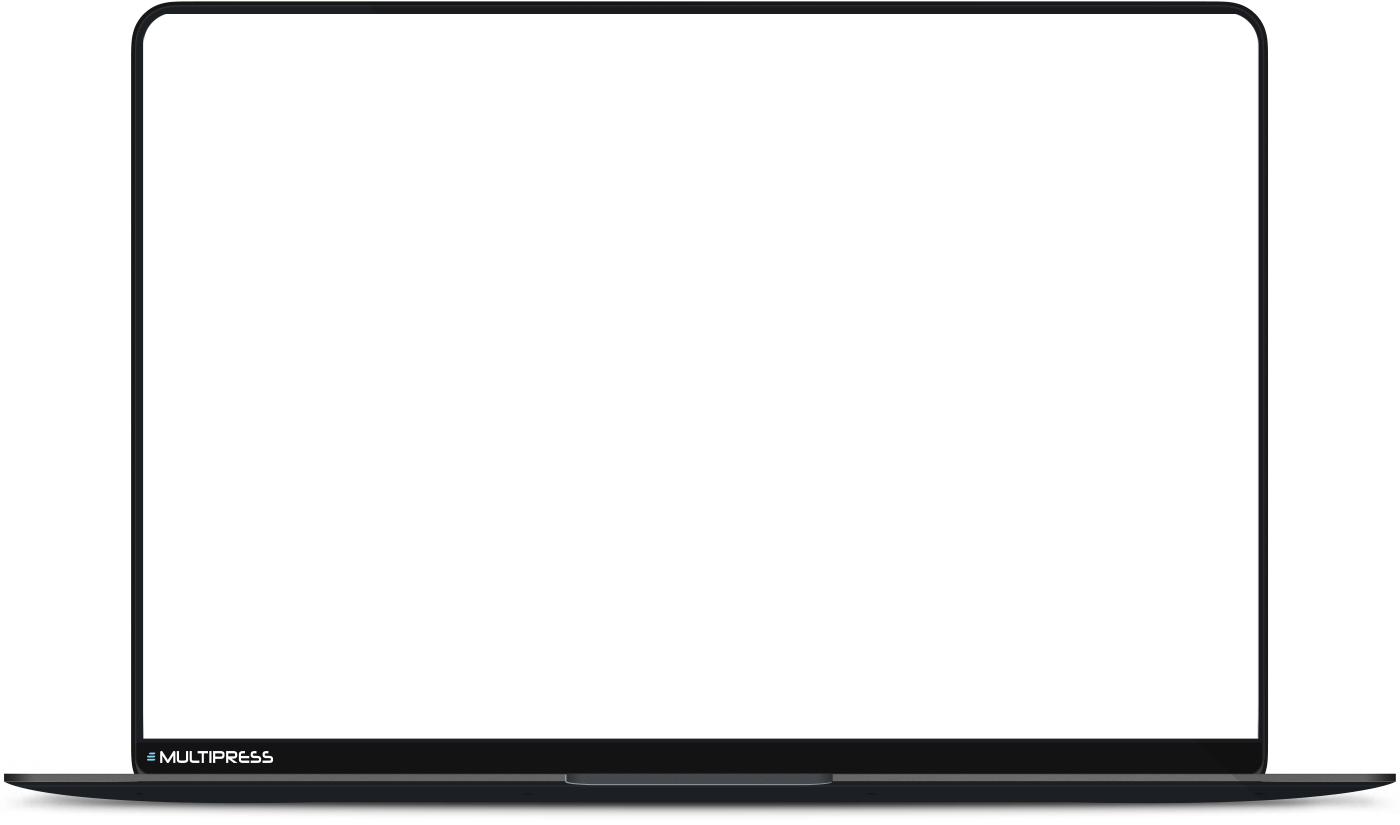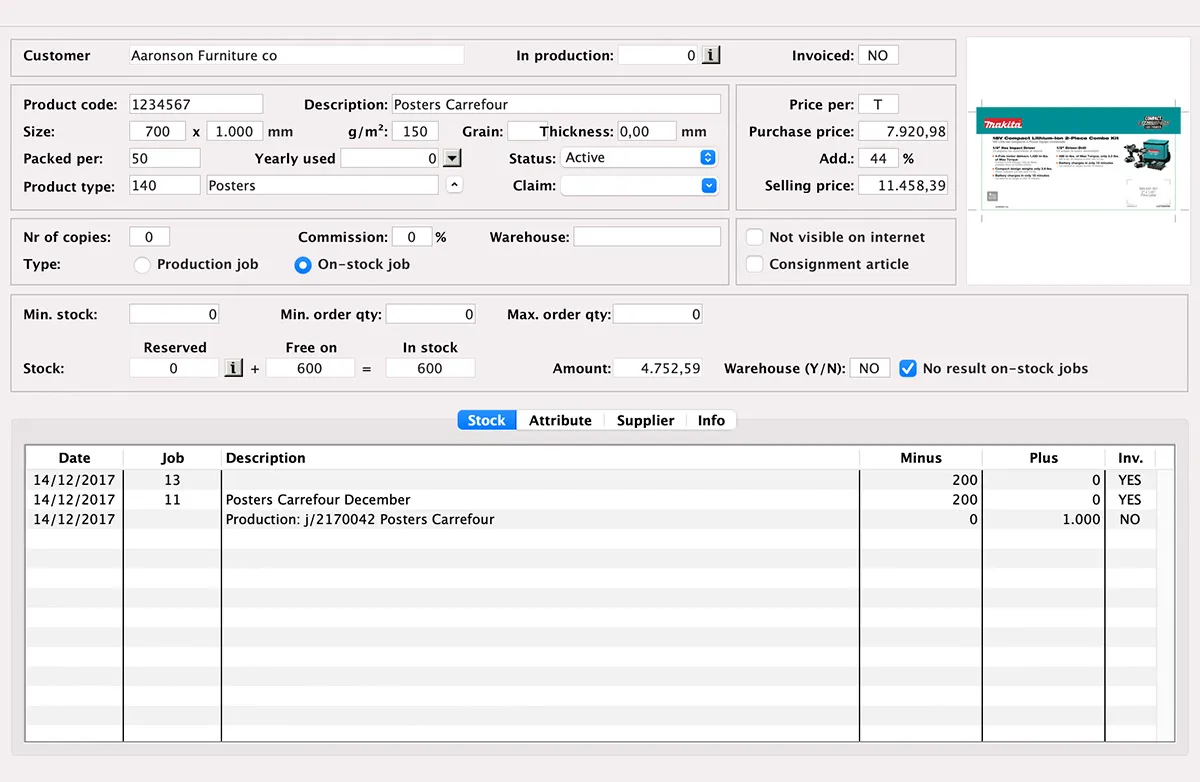Printed material in stock, delivered in no time!
For customers who stock their printed materials with you, call-off orders are an ideal way to always have their materials quickly available. With MultiPress, you can process these orders extremely efficiently. You always know what you have in stock and what is not, so you and your clients will never be faced with surprises.
Call-off orders are quick to start up in MultiPress. They are mainly used to deliver finished products from stock. However, call-off orders can also be used for semi-finished products, such as preprints of business cards or stationery that need to be processed further from the warehouse.
If one of your customers wants to place an order for goods that you have in stock a picking list is automatically created. Then a delivery note and the appropriate delivery labels are created. The delivery note and labels can be designed as you wish: with your house style or without. The delivery note contains clear information about the planned dates so that the delivery time is always clear.
With call-off orders in MultiPress, you always have an overview of the number of jobs in stock during a given period, the quantities purchased by the customer and the most frequently used warehouse location.
You can also add individual items or extra costs to a call-off order. The orders are further processed in the traditional way, including a delivery note, invoice, and order archiving. Based on the call-off orders that have been delivered, an up-to-date overview of the remaining stock of the articles per customer is always available. Your employees no longer need to enter the warehouse each time to do a new count. This way, you avoid unexpected shortages and costly rush orders.
- Efficient and fast: call-off orders for printed material from stock can be processed quickly and efficiently in MultiPress
- Up-to-date overview: an overview of the current stock per article for each client is available at any time
- Save time and money: identify potential shortages early, thus avoiding costly rush jobs

